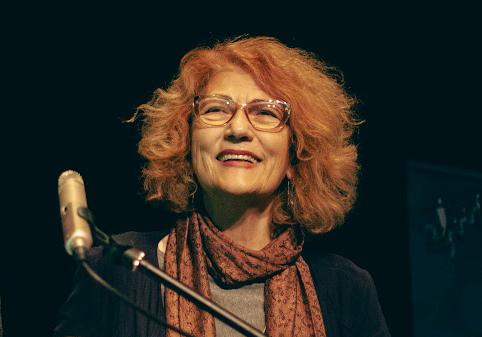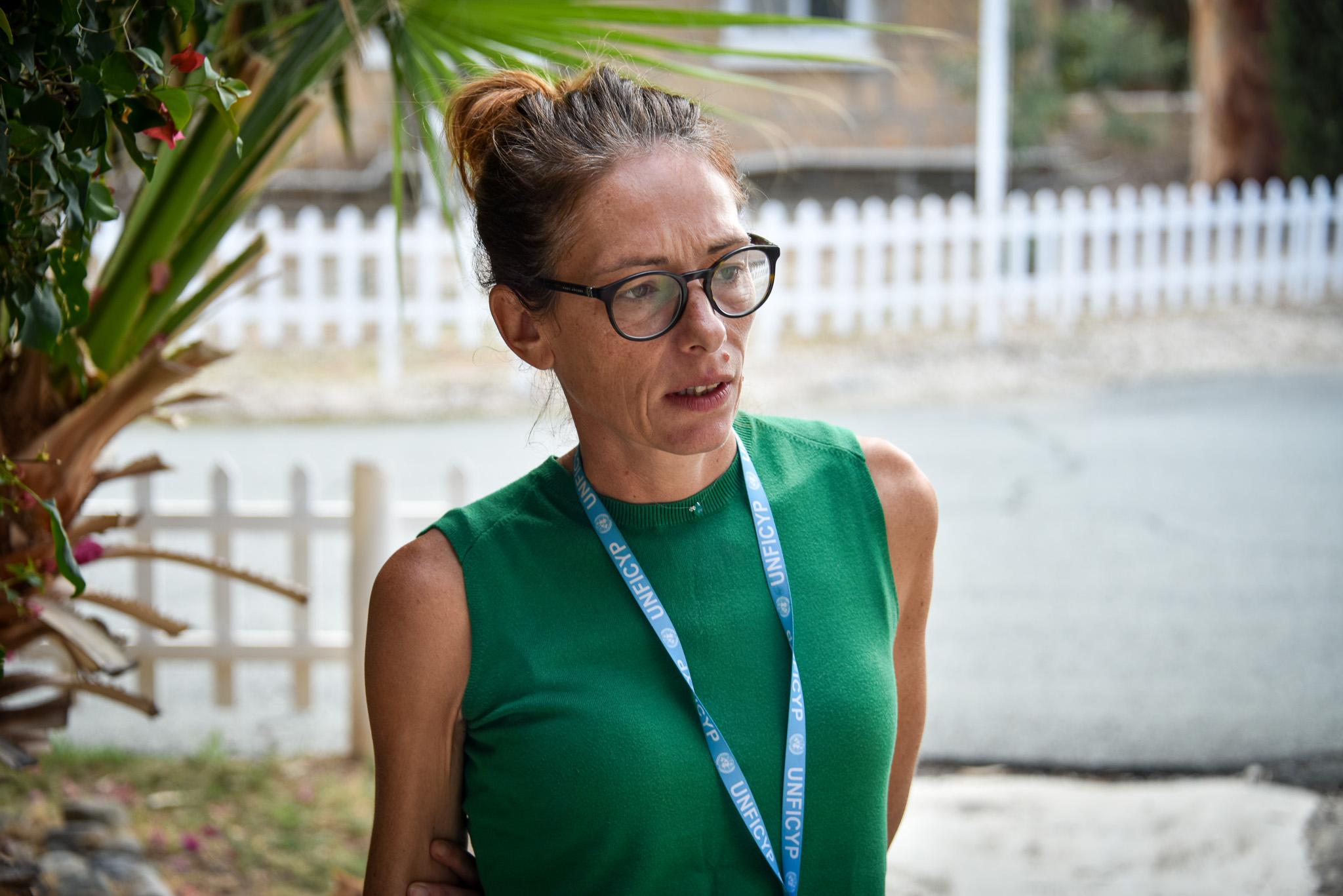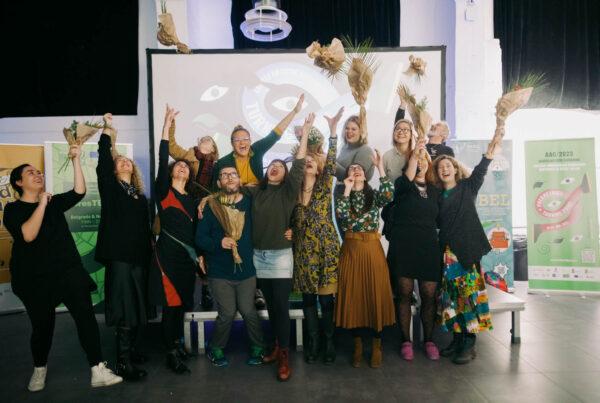By Melissa Hekkers.

The first time I met Diana was when I set foot at the ‘Duško Radović’ in downtown Belgrade, about an hour after I had arrived in the country.
As I travelled from Cyprus to Belgrade on the occasion of this year’s Artistic Gathering, I had an eery feeling about travelling as a war was developing a stone’s throw away from Cyprus’ shores. This wasn’t the first time I flew the skies as wars pounded the grounds below me. It was pertinent how fortunate I was to be able to travel to foreign countries to see art practitioners reach out to the youngest ones of us, as well as how the practice has evolved, what challenges it faces, what visions it seeks to materialise. I also knew that going to Serbia, for the first time, was significant in my own timeline. Cyprus saw a lot of refugees from Serbia in the 90s and it’s also a country that is divided in two as a consequence of its own war in 1974. Serbia is a child of war too.
My frame of mind as I arrived at Duško Radović was therefore somewhat bewildered. But my encounter with Diana ensured me of the realms I was immersing myself in. It was only after I walked away from our conversation that I realised who she was. The President of ASSITEJ Serbia.
The next words I heard from Diana were the following day, at the opening conference of the Gathering. “We are at a turning point at this moment in time in multiple ways, facing manifold crises in our own societies as well as a global community. We hope that gathering all of these wonderful voices will enable us to think jointly, inspire us to find new ways to face these challenges, and illuminate the path forward together,” she said on stage.
From then on we bumped into each other here and there. I knew I wanted to sit down and talk to her, get a grasp of the path that led her to her current presidency, but I also knew this would be impossible to materialise in a whimsical hour and aside all the happenings that were developing at the Gathering. But we managed to find half an hour to ourselves.
We talked about the title of the Gathering, notably ‘Turning Point’, how this was a call to reflect, for both practitioners and the field of TYA itself, as well as own personal turning points. We discussed some of the challenges she and her association faced to materialise the Gathering, the importance of making it a regional one and notably the absence of children attending some of the Gathering’s performances, a fact that she’s very aware of. We talked about ASSITEJ Serbias’ journey itself, the fact that it was interrupted by war, and returned to action in 2003. We spoke about the urgency of the arts and theatre for youth in particularly, predominantly post the war and up until today.
And as we philosophised the challenges ahead, the groundwork that has been done in the past and the journey Diana herself has navigated in order to be in a position to materialise this year’s Gathering in her own country, I realise that from a personal point of view, one of the turning points Diana is currently facing is how to gradually ‘hand over the baton’. Handing over the baton in the sense that she senses the time has come to handover the trajectory and experience she has accumulated to the future generations, to gradually take a step back, albeit not entirely, and let the younger generation have their voice, have their ways. She made it clear that the younger generation needs to have the same values as she was taught as a child, but that they need to attain these values in a different way than she did. That different way can only be guided by the new generation itself and supported by those who have had invaluable experience before them. What’s for certain is that Diana will stand right beside them, as they take their own steps into the ever inspiring world of TYA. As she quoted at the opening of the conference, “when many voices are joined together, change can happen.”
* Diana Kržanić Tepavac is the President of ASSITEJ Serbia for the last 15 years.
 Melissa Hekkers is a freelance journalist and author.
Melissa Hekkers is a freelance journalist and author.
Her most recent book, Amir’s Blue Elephant, a creative non-fiction based on her experiences working in the Moria refugee camp in Lesvos, Greece and Cyprus. In 2018, she launched the My Cyprus Mandala Series, colouring books inspired by the natural and cultural heritage of Cyprus. In 2007, she published her first children’s book in both English and Greek entitled Crocodile, which won the Cyprus State Illustration Award. In 2012, she launched her second children’s book Flying across Red Skies (in English and Greek), using an experimental approach to literature, for which she was nominated for the Cyprus State Literary award. Her third, similarly well-received children’s book was Pupa (Greek and English), published in 2014 and was adapted as a theatre play in 2019. In between her last two books, she published her first free-verse poetry book entitled Come-forth. In 2019 she was contributing author to the anthology Nicosia Beyond Barriers: Voices from a Divided City, published by Saqi Books, London.





